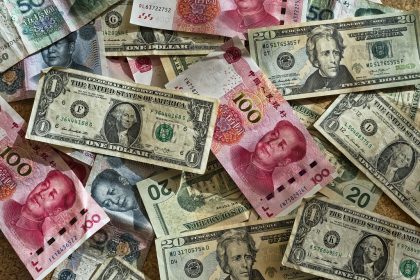The intermediaries and wallets that will have direct involvement in issuing the digital yuan will be highly regulated, giving an extra level of confidence to users.
A researcher from the Peterson Institute for International Economics (PIIE), Martin Chorzempa believes the rollout of China’s Digital Currency Electronic Payment (DCEP) project, digital yuan, must first outpace the country’s indigenous payment giants before looking to compete with the United States Dollar.Speaking on CNBC’s “Street Signs Asia” on Wednesday, Chorzempa noted that the biggest hurdle for the DCEP, also known as the Digital Yuan will be to surpass the transactions being processed by Alibaba’s Alipay and Tencent’s WeChat Pay. These two fintech giants control as much as 95% of all digital payments made in the Asian nation today.“A lot of people talk about (the digital yuan) being a driver of renminbi internationalization,” Chorzempa, a senior fellow at PIIE, told CNBC via an interview. “I think they have to beat Alipay and WeChat Pay in China before, I think, that they can make a dent in the US dollar.”The researcher believes the control of the payment ecosystem in the country is “going to be essentially the central bank versus the big tech companies and that’s going to be quite interesting to watch.”China’s ambitions to roll out its Digital Yuan have gathered a lot of momentum in recent months, with test trials being carried out in different cities. The latest of these involved the giveaway of $1.5 million in Beijing during the Chinese Lunar New Year celebration. This experiment models those done in Shenzhen and Suzhou back in 2020.The level of successes recorded in these exercises has placed China at the top of the echelon with respect to Central Bank Digital Currency (CBDC) development among nations. ″(The digital yuan) is something that’s really unprecedented among the major economies,” Chorzempa said. “China is … by far the most advanced of any in digital currency and it’s exciting to watch.”China’s DCEP Project Has Clear Variations grom Bitcoin and EthereumChina’s DCEP Project has also been noted by Chorzempa to vary remarkably from other mainstream cryptocurrencies including Bitcoin (BTC), and Ethereum (ETH). A major difference highlighted by the researcher is in the safety of both categories of digital currencies.“I would say the safety levels (of the digital yuan are) very high and the risk is low,” he said. “It’s designed to have the same value as any regular renminbi, so there should be no price fluctuations to worry about.”These fluctuations define Bitcoin and altcoins, and other plausible market manipulations prevalent in the cryptocurrency ecosystem will be absent under the DCEP controlled digital economy. The intermediaries and wallets that will have direct involvement in issuing the digital yuan will be highly regulated, giving an extra level of confidence to users.“I wouldn’t be too worried about the safety of a digital renminbi in a central bank regulated wallet,” Chorzempa noted.While the DCEP may be tipped to have international recognition in due time, dominating its local market undoubtedly a challenge it must first overcome.








